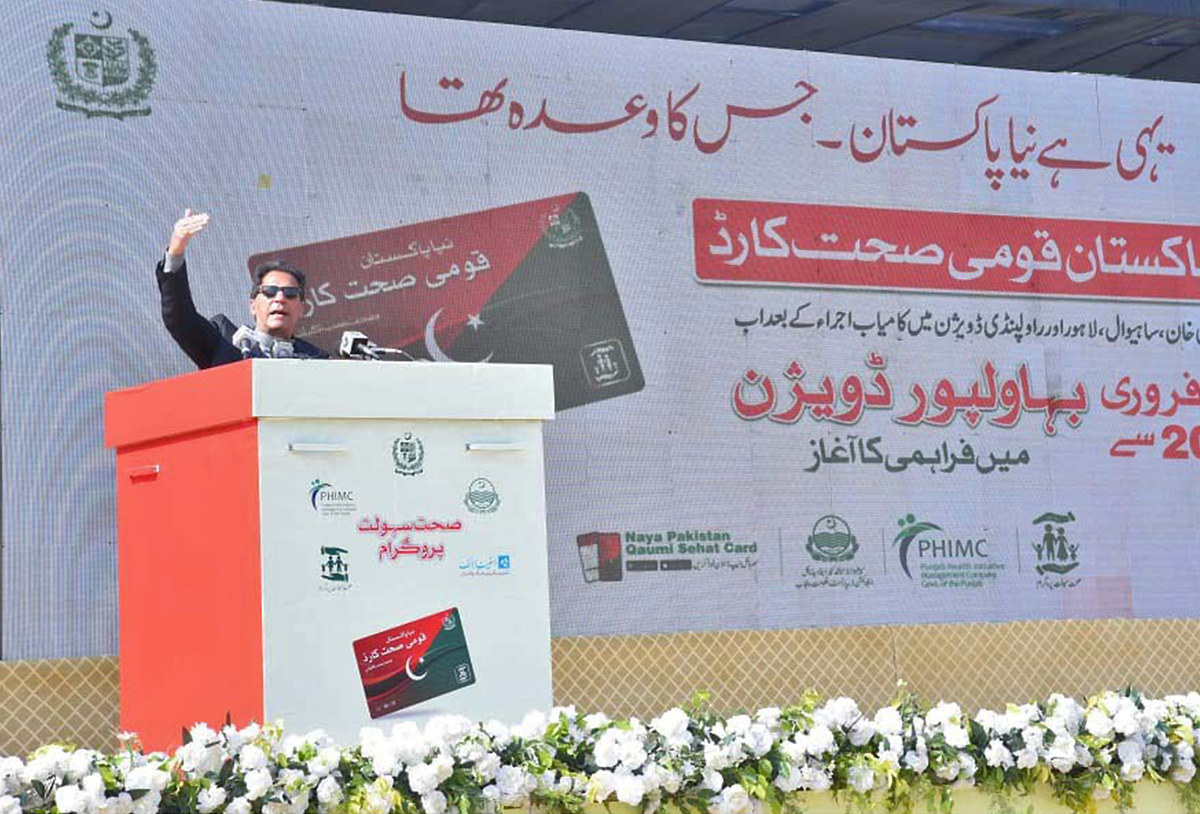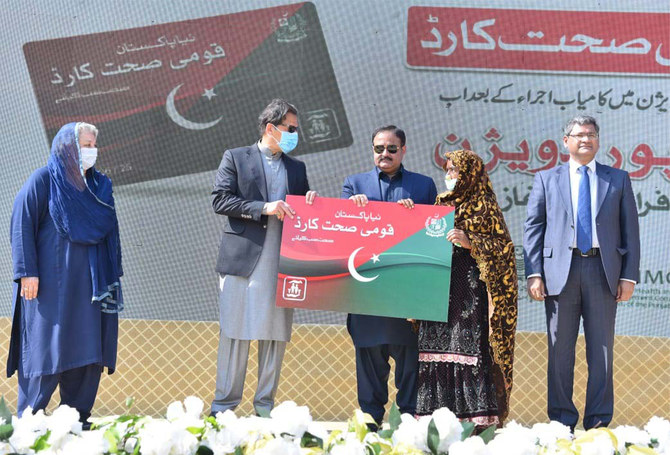ISLAMABAD: Prime Minister Imran Khan said on Tuesday the government’s decision to distribute health cards among people would not only make life easier for the ordinary citizens but also improve the broken health care system of the country.
Addressing a ceremony to introduce Naya Pakistan National Health Card in Bahawalpur, he promised the residents of southern Punjab access to education, development and health care in the coming days.
He noted it was not possible for the state to build hospitals everywhere and induct trained medical professionals due to financial constraints.
However, he was optimistic that the health card introduced by his administration would help people in small towns and villages who mostly visit public hospitals in their district even when these health facilities have limited capacity to deal with so many patients.
“This health card will encourage the private sector to build hospitals even in small cities which were previously ignored since residents of these areas usually lack money [to spend on their health],” he told the gathering. “This card will change things since people will now have money [to look after themselves].”
The national health card promises each household Rs1 million of medical coverage annually.
These cards will also be accepted by private hospitals which will charge the government for treating people belonging to financially underprivileged segments.
The prime minister said the health card would improve health coverage across the country and bring government hospitals under pressure to perform as well.
“You will see a revolution in Pakistan’s healthcare system very soon,” he said.

Pakistan's Prime Minister Imran Khan addresses the launching ceremony of Naya Pakistan National Health Card in Bahawalpur, Pakistan, on February 1, 2022. (PID)
Khan also maintained during his speech that no previous administration had spent so much money on people as his government, adding that the country’s most densely populated Punjab province had allocated Rs400 billion to support the health card system.
He said his government was turning Pakistan into a welfare state at a time when international economies were suffering the consequences of the coronavirus pandemic.
The prime minister noted that despite all the criticism against the current administration, even the World Bank had acknowledged 5.37 percent economic growth in the country.
















